Top CRM Consulting Companies in Laval
Unleash the true potential of your business with the top CRM consulting companies in Laval. These industry-leading firms are dedicated to optimizing your customer relationship management strategies, ensuring seamless interactions and unparalleled customer experiences. With their extensive expertise and innovative solutions, they empower your business to thrive in today's competitive landscape.
CRM (Customer Relationship Management) consulting companies play a crucial role in helping businesses leverage technology and strategies to manage interactions with current and potential customers. Here's an overview of CRM consulting companies, highlighting their importance in various aspects of business:
Importance of CRM Consulting in Business:
Customer Service Management
Effective customer service is vital for retaining customers and building brand loyalty.
CRM consulting companies assist businesses in implementing CRM systems that streamline customer service processes.
They focus on features like case management, ticketing systems, and knowledge bases to enhance customer support efficiency.
Marketing Campaign Development
Targeted marketing campaigns are essential for attracting and retaining customers.
CRM consulting firms help businesses design and execute marketing strategies using CRM platforms.
They utilize customer data to segment audiences, personalize messaging, and track campaign performance for better ROI.
CRM Consulting Services
CRM consulting firms offer a diverse array of services aimed at maximizing the value of CRM investments for businesses. These services typically include:
Custom CRM Development: Tailoring CRM functionalities to align with specific business processes and requirements.
CRM Integration: Connecting CRM systems with other business applications and platforms to create a cohesive workflow.
CRM Migration: Assisting businesses in migrating from legacy CRM platforms to modern CRM solutions or upgrading their existing CRM systems.
CRM Platform Enhancement: Enhancing CRM platforms with additional features and customizations to improve user experiences and streamline operations.
CRM Consulting Solutions
In addition to development services, CRM consulting solutions are pivotal in helping businesses devise effective CRM strategies. Consulting services may encompass:
CRM Strategy Development: Formulating strategic roadmaps for CRM implementation and optimization tailored to each business's objectives.
CRM Health Assessment: Conducting comprehensive evaluations of existing CRM systems to identify areas for improvement and optimization.
CRM Training and Support: Providing comprehensive training programs to ensure end-users can effectively utilize CRM systems and offering ongoing support to address any challenges encountered.

Devpresso Consulting Inc
Devpresso is a Salesforce consulting firm that empowers you to automat...
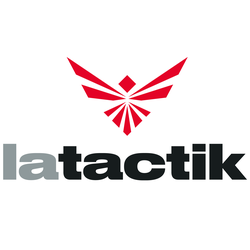
Agence Latactik Inc.
Au coeur des processus
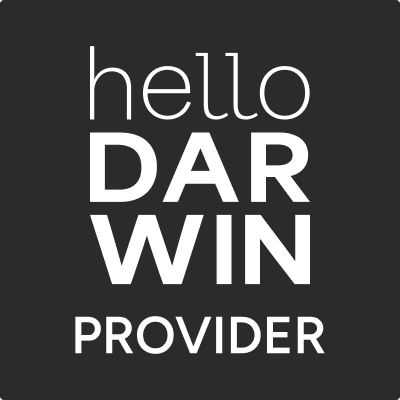
SkyFluent CRM Solutions
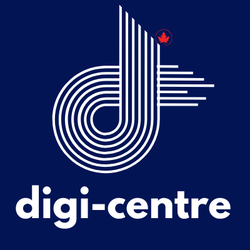
Digi-Centre
Nous vous aidons à utiliser la technologie pour en faire plus avec moi...

Bigtek Technologies
Bigtek Technologies inc. offre des services TI 360.

Mtl Sys Tech
We make your ideas come to life.

RAION Solutions
On s'occupe de vous, on s'occupe de tout !

MEDIAVORE interactif

Teckka
Concentrez-vous sur la croissance, on s’occupe de la technologie.

Groupe lack
Développement numérique sur mesure
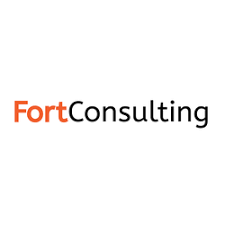
Fort Consulting Inc.
IT Consulting & Software Engineering

Altimum IMS

Cybens Technologies

Propulsion Web 360
Le futur appartient à ceux qui s'adaptent

Lemon-co Web Agency
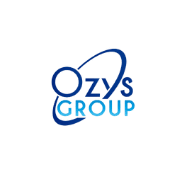
OZYSGROUP

Geneviève Thérien

Alcero

Groupe Conseil Lartis
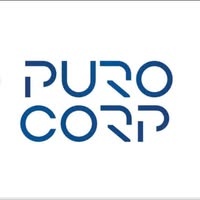
Purocorp

Solutions d'affaires Boost

André Dussault

Groupe Conseil Lartis Inc

Schneller marketing
Have questions about CRM consulting companies in Laval?
What is a CRM?
What's the difference between a CRM and an ERP system?
- Focus:
- CRM: CRM systems primarily focus on managing interactions and relationships with customers. They centralize customer data, track communication history, manage sales leads and opportunities, and facilitate marketing campaigns. The main goal of a CRM system is to improve customer satisfaction, retention, and loyalty.
- ERP: ERP systems, on the other hand, focus on integrating and managing core business processes such as finance, human resources, inventory management, procurement, manufacturing, and supply chain management. ERP systems aim to streamline internal processes, increase efficiency, and provide a unified view of business operations across departments.
- Scope:
- CRM: CRM systems typically cover customer-facing activities, including sales, marketing, and customer service. They are designed to optimize interactions with customers and prospects to drive sales and build long-term relationships.
- ERP: ERP systems cover a broader range of business functions and processes, spanning across departments and business units. They are designed to manage internal operations and resources, including financial transactions, inventory management, production planning, HR management, and supply chain logistics.
- Data Focus:
- CRM: CRM systems focus primarily on customer data and interactions, such as contact information, communication history, purchase history, preferences, and feedback.
- ERP: ERP systems manage various types of data related to internal business processes, including financial data, employee information, inventory levels, production schedules, and procurement records.
- Integration:
- CRM: CRM systems may integrate with other systems such as marketing automation tools, email platforms, and customer support software to provide a comprehensive view of customer interactions and streamline processes.
- ERP: ERP systems often include modules that cover different aspects of business operations, allowing for seamless integration and data sharing across departments.
How do CRM consulting companies help businesses improve their sales processes?
- CRM Implementation and Customization: CRM consulting firms assist businesses in selecting and implementing CRM systems tailored to their specific needs and goals. They customize CRM platforms to align with the organization's sales processes, ensuring seamless integration with existing workflows and systems.
- Centralized Data Management: CRM consulting companies in Laval help businesses centralize their customer data, including contact information, purchase history, interactions, and preferences, within a single platform. This centralized data repository enables sales teams to access up-to-date information about leads and customers, facilitating more informed and personalized interactions.
- Lead Management: CRM consulting firms design and implement lead management processes within CRM systems, enabling businesses to effectively capture, qualify, assign, and track leads throughout the sales pipeline. Automated lead scoring and routing features help prioritize leads and ensure timely follow-up, increasing sales efficiency.
- Pipeline Management: CRM consulting companies in Laval assist businesses in setting up and optimizing their sales pipelines within CRM platforms. They design customized pipeline stages and workflows that reflect the organization's unique sales processes, enabling sales teams to track opportunities, forecast revenue, and identify bottlenecks more effectively.
- Sales Automation: CRM consulting firms implement sales automation features within CRM systems to streamline repetitive tasks and workflows. Automation of tasks such as email outreach, follow-up reminders, quote generation, and contract management enables sales teams to focus more time and effort on building relationships and closing deals.
- Sales Analytics and Reporting: CRM consulting companies in Laval help businesses leverage CRM analytics and reporting capabilities to gain insights into sales performance, trends, and opportunities. They configure custom dashboards and reports within CRM systems, providing sales teams and management with real-time visibility into key metrics such as pipeline velocity, win rates, and sales forecasts.
- Training and Support: CRM consulting firms provide training and ongoing support to sales teams to ensure they effectively utilize CRM systems and tools. They offer training programs on CRM usage, best practices, and sales methodologies, empowering sales professionals to leverage CRM technologies to their fullest potential.
How do CRM consulting companies in Laval assist businesses with marketing strategies?
- CRM Platform Selection and Implementation: CRM consulting firms help businesses select the right CRM platform that aligns with their marketing goals and objectives. They assist in implementing the CRM system and customizing it to capture relevant marketing data and facilitate campaign management.
- Data Integration and Management: CRM consulting companies in Laval ensure seamless integration between the CRM platform and other marketing tools and systems, such as email marketing software, social media platforms, and advertising platforms. This integration allows businesses to centralize marketing data and gain a comprehensive view of customer interactions across various channels.
- Customer Segmentation and Targeting: CRM consulting firms help businesses segment their customer base based on various criteria such as demographics, behavior, and purchase history. They assist in creating targeted marketing campaigns tailored to specific customer segments, increasing the relevance and effectiveness of marketing efforts.
- Personalization and Automation: CRM consulting companies in Laval leverage CRM systems to personalize marketing communications and automate repetitive marketing tasks. They help businesses set up automated email campaigns, personalized messaging, and dynamic content based on customer preferences and behavior, enhancing engagement and conversion rates.
- Campaign Analysis and Optimization: CRM consulting firms provide businesses with insights into the performance of marketing campaigns through CRM analytics and reporting capabilities. They help businesses track key metrics such as campaign ROI, customer acquisition costs, and conversion rates, allowing them to optimize marketing strategies for better results.
- Lead Nurturing and Management: CRM consulting companies in Laval assist businesses in implementing lead nurturing strategies to engage prospects throughout the customer journey. They help businesses track and manage leads within the CRM system, ensuring timely follow-up and nurturing to move leads through the sales funnel effectively.
- Marketing Automation Training and Support: CRM consulting firms provide training and support to marketing teams on using CRM and marketing automation tools effectively. They offer guidance on best practices, campaign setup, and utilization of CRM features to maximize the impact of marketing efforts.
What industries do CRM consulting companies in Laval typically serve?
- Retail: CRM consulting firms help retail businesses manage customer relationships, personalize marketing campaigns, and improve customer loyalty through targeted promotions and rewards programs.
- Financial Services: CRM consulting companies in Laval assist financial institutions in managing client relationships, tracking sales opportunities, and complying with regulatory requirements through CRM solutions tailored to the industry's unique needs.
- Healthcare: CRM consulting firms help healthcare organizations enhance patient engagement, streamline appointment scheduling, and improve care coordination through CRM systems designed to integrate patient data and support patient communication.
- Technology: CRM consulting companies in Laval assist technology firms in managing sales pipelines, tracking customer interactions, and improving customer support through CRM platforms that integrate with technical support systems and developer tools.
- Manufacturing: CRM consulting firms help manufacturing companies streamline sales processes, manage distributor relationships, and track customer orders through CRM systems that integrate with supply chain management software.
- Hospitality: CRM consulting companies in Laval assist hospitality businesses in managing guest relationships, personalizing marketing campaigns, and improving customer service through CRM platforms tailored to the industry's unique needs.
- Professional Services: CRM consulting firms help professional services firms, such as consulting, legal, and accounting firms, manage client relationships, track billable hours, and streamline project management through CRM systems designed for service-based businesses.
- Education: CRM consulting companies in Laval assist educational institutions in managing student relationships, tracking enrollment inquiries, and improving student engagement through CRM solutions that integrate with student information systems and learning management platforms.
- Nonprofit: CRM consulting firms help nonprofit organizations manage donor relationships, track fundraising campaigns, and improve donor retention through CRM systems designed to support nonprofit fundraising and donor management.
How do CRM consulting companies in Laval help businesses improve customer service?
- CRM Platform Selection and Implementation: CRM consulting firms assist businesses in selecting the right CRM platform that includes robust customer service management features. They help implement the CRM system and customize it to streamline customer service processes and workflows.
- Multichannel Support Integration: CRM consulting companies in Laval ensure seamless integration between the CRM platform and various communication channels, such as email, phone, live chat, social media, and self-service portals. This allows businesses to provide consistent and efficient customer service across multiple channels.
- Case Management: CRM consulting firms help businesses set up case management systems within the CRM platform to track and resolve customer inquiries, issues, and complaints efficiently. They design workflows for case escalation, assignment, and resolution, ensuring timely responses and satisfactory outcomes.
- Knowledge Management: CRM consulting companies in Laval assist businesses in implementing knowledge management systems within the CRM platform to centralize and organize support resources, including FAQs, troubleshooting guides, and product documentation. This enables customer service representatives to access relevant information quickly and provide accurate solutions to customer inquiries.
- Automation of Routine Tasks: CRM consulting firms automate routine customer service tasks, such as ticket creation, routing, and status updates, using CRM workflow automation features. This frees up time for customer service representatives to focus on more complex issues and provide personalized assistance to customers.
- Self-Service Options: CRM consulting companies in Laval help businesses implement self-service options within the CRM platform, such as knowledge bases, FAQs, and online forums. This empowers customers to find answers to their questions and resolve issues independently, reducing the workload on customer service teams and improving customer satisfaction.
- Performance Monitoring and Analytics: CRM consulting firms configure dashboards and reports within the CRM platform to monitor key performance metrics related to customer service, such as response times, resolution rates, customer satisfaction scores, and service level agreements (SLAs). This enables businesses to identify areas for improvement and make data-driven decisions to enhance customer service quality.
How do CRM consulting companies in Laval assist businesses in software development?
- Requirement Analysis: CRM consulting companies in Laval work closely with businesses to understand their requirements and objectives for software development projects. They conduct thorough analysis and gather requirements to ensure that the software solution aligns with the business goals and addresses the specific needs of the organization.
- Technology Selection: CRM consulting firms assist businesses in selecting the right technology stack for software development projects. They provide expertise in various technologies, frameworks, and platforms, helping businesses choose the most suitable options based on factors such as scalability, performance, security, and cost-effectiveness.
- Architecture Design: CRM consulting companies in Laval design software architectures that are scalable, flexible, and maintainable. They define the overall structure of the software solution, including components, modules, interfaces, and data flows, to ensure that it meets the business requirements and aligns with best practices and industry standards.
- Custom Development: CRM consulting firms offer custom software development services to build tailored solutions that meet the unique needs of businesses. They develop custom features, functionalities, and modules based on the specific requirements of the organization, leveraging their expertise in software development technologies and methodologies.
- Integration Services: CRM consulting companies in Laval assist businesses in integrating software solutions with other systems and applications within the organization's ecosystem. They ensure seamless data flow and interoperability between different systems, such as CRM platforms, ERP systems, third-party APIs, and legacy applications, to optimize business processes and enhance efficiency.
- Quality Assurance: CRM consulting firms provide quality assurance and testing services to ensure the reliability, performance, and security of software solutions. They conduct thorough testing, including functional testing, performance testing, security testing, and usability testing, to identify and address any issues or defects before deployment.
How do CRM consulting companies in Laval assist businesses in team management?
- CRM Implementation for Team Collaboration: CRM consulting companies in Laval help businesses implement CRM systems that facilitate team collaboration and communication. They configure CRM platforms with features such as shared calendars, task management, team chat, and document sharing to streamline collaboration among team members.
- Workflow Automation: CRM consulting firms automate routine tasks and processes within CRM systems to improve team efficiency and productivity. They design workflows and automation rules to automate tasks such as lead assignment, follow-up reminders, task escalations, and notifications, reducing manual workload and ensuring timely execution of tasks.
- Performance Tracking and Analytics: CRM consulting companies in Laval configure dashboards and reports within CRM systems to track key performance metrics related to team management, such as task completion rates, response times, and team productivity. They provide insights into team performance and identify areas for improvement, enabling businesses to make data-driven decisions to optimize team performance.
- Training and Development: CRM consulting firms offer training and development programs to help teams maximize their effectiveness and proficiency in using CRM systems and tools. They provide training sessions on CRM usage, best practices, and collaboration techniques, empowering team members to leverage CRM technologies to their fullest potential.
- Team Coaching and Support: CRM consulting companies in Laval provide ongoing coaching and support to teams to address challenges, resolve issues, and optimize team dynamics. They offer guidance on teamwork, communication, conflict resolution, and leadership skills, helping teams work together more effectively and achieve their goals.
- Integration with HR Systems: CRM consulting firms assist businesses in integrating CRM systems with HR systems and employee management tools to streamline team management processes. They ensure seamless data synchronization between CRM and HR systems, including employee profiles, roles, permissions, and performance evaluations, to facilitate effective team management.
What are some of the leading CRM platforms for small businesses to consider?
- HubSpot CRM: HubSpot CRM is known for its user-friendliness and tight integration with HubSpot's marketing tools. It offers a free version with basic features such as contact management, email tracking, and sales pipeline management.
- Zoho CRM: Zoho CRM is an affordable cloud solution that provides a comprehensive range of CRM features, including contact management, sales management, marketing automation, and customer support. It's popular for its easy setup and competitive pricing.
- Freshworks CRM (formerly Freshsales): Freshworks CRM offers an intuitive interface and powerful sales features tailored for small teams. It also provides marketing and customer support features for holistic customer relationship management.
- Salesforce Essentials: Salesforce Essentials is a simplified version of the Salesforce platform designed specifically for small businesses. It offers basic CRM features as well as sales and customer support tools, all in a user-friendly interface.
- Insightly: Insightly is a popular CRM solution for small businesses, offering features for contact management, project management, and collaboration. It's particularly suitable for businesses needing both CRM and project management functionality.
What are some of the leading CRM platforms in Laval?
- Salesforce: Salesforce is one of the leading CRM platforms globally, known for its robust features, scalability, and extensive customization options.
- Microsoft Dynamics 365: Microsoft Dynamics 365 offers a comprehensive suite of CRM and ERP solutions, with seamless integration with other Microsoft products such as Office 365.
- HubSpot CRM: HubSpot CRM is a user-friendly and affordable option, particularly popular among small and medium-sized businesses for its ease of use and inbound marketing capabilities.
- Zoho CRM: Zoho CRM is a cloud-based solution that offers a wide range of features at competitive pricing, making it popular among businesses of all sizes.
- SAP Sales Cloud (formerly SAP Hybris): SAP Sales Cloud provides end-to-end CRM functionality along with advanced analytics and reporting capabilities, suitable for large enterprises.
- SugarCRM: SugarCRM offers flexible deployment options (cloud-based or on-premises) and extensive customization capabilities, making it popular among businesses with unique CRM requirements.
- Insightly: Insightly is a CRM platform tailored for small and medium-sized businesses, known for its project management and collaboration features alongside CRM functionality.
What are the overall benefits of using a CRM system for a business?
- Data Collection: The CRM system collects and stores various types of customer data from multiple sources, including contact information, communication history (such as emails, phone calls, and meetings), purchase history, social media interactions, and more. This data can come from manual entry by employees, integration with other software systems (such as email clients and e-commerce platforms), and automated data capture processes.
- Data Organization: The collected data is organized and structured within the CRM database. This organization typically involves categorizing customers, leads, and opportunities, as well as creating custom fields and tags to classify and segment data based on specific criteria (such as industry, location, or purchase behavior).
- Data Analysis: CRM systems often include analytical tools and reporting features that allow businesses to gain insights from their customer data. These tools can generate reports, dashboards, and visualizations to track key performance indicators (KPIs), identify trends, forecast sales, and evaluate the effectiveness of marketing campaigns.
- Customer Interaction Management: CRM systems enable businesses to manage customer interactions more efficiently by providing tools for tracking and recording communication with customers across various channels. This includes features such as email integration, call logging, appointment scheduling, and task management, which help employees stay organized and follow up with customers in a timely manner.
- Workflow Automation: Many CRM systems offer workflow automation capabilities to streamline repetitive tasks and processes. This may include automated email responses, lead scoring, task assignment, and sales pipeline management, allowing businesses to optimize their workflows and focus their efforts on high-value activities.
- Integration: CRM systems often integrate with other business software applications to facilitate data sharing and improve overall efficiency. Common integrations include email marketing platforms, accounting software, customer support systems, and e-commerce platforms, allowing businesses to maintain a unified view of customer data across different departments and systems.
- Customer Engagement: By providing a centralized platform for managing customer data and interactions, CRM systems enable businesses to engage with customers more effectively. This includes personalized communication, targeted marketing campaigns, proactive customer support, and ongoing relationship management, all of which contribute to building stronger customer relationships and driving business growth.
What are the main advantages of using a CRM system for a business?
- Growth Phase: As your business grows and your customer base expands, managing customer interactions and data becomes more complex. Implementing a CRM system can help streamline processes, improve organization, and ensure that customer relationships are effectively managed as the business scales.
- Customer Relationship Management Challenges: If your business struggles with managing customer relationships, such as keeping track of communication history, identifying sales opportunities, or providing personalized experiences, a CRM system can provide the tools and structure needed to address these challenges more effectively.
- Sales and Marketing Alignment: When sales and marketing teams are not aligned or communication between departments is lacking, it can lead to inefficiencies and missed opportunities. A CRM system can facilitate collaboration between sales and marketing teams by providing a centralized platform for sharing customer data, tracking leads, and coordinating efforts to attract and retain customers.
- Data Disorganization: If your business has scattered customer data across multiple spreadsheets, databases, or systems, it can be difficult to gain insights and make informed decisions. A CRM system centralizes customer data in one place, making it easier to access, analyze, and utilize for strategic planning and decision-making.
- Customer Service Improvement: If you want to improve the quality and efficiency of your customer service, a CRM system can help by providing tools for tracking customer inquiries, resolving issues in a timely manner, and delivering personalized support based on customer preferences and history.
- Scalability: Implementing a CRM system early on, even for small businesses, can help set the foundation for future growth and scalability. A well-implemented CRM system can adapt to the changing needs of your business as it grows, allowing you to continue providing excellent customer experiences without outgrowing your systems and processes.
For what purpose is a CRM system most used?
- Managing Customer Data: One of the primary purposes of a CRM system is to centralize and organize customer data. This includes storing contact information, communication history, purchase history, preferences, and any other relevant details about customers and prospects.
- Improving Customer Relationships: CRM systems help businesses better understand their customers and build stronger relationships with them. By providing insights into customer behavior and preferences, businesses can personalize interactions, anticipate needs, and deliver tailored experiences that enhance customer satisfaction and loyalty.
- Sales Management: CRM systems are widely used to manage the sales process. This includes tracking leads and opportunities, managing sales pipelines, forecasting sales, and analyzing sales performance. By providing visibility into the sales pipeline and automating routine tasks, CRM systems help sales teams stay organized, prioritize leads, and close deals more effectively.
- Marketing Automation: CRM systems often include marketing automation capabilities, allowing businesses to automate marketing processes such as email campaigns, lead nurturing, and segmentation. By leveraging customer data stored in the CRM, businesses can create targeted marketing campaigns that reach the right audience with the right message at the right time.
- Customer Service and Support: CRM systems play a crucial role in managing customer service and support activities. They provide tools for tracking customer inquiries, resolving issues, and delivering timely and personalized support. By centralizing customer data and communication history, CRM systems help customer service teams deliver consistent and efficient service across all channels.
- Analytics and Reporting: CRM systems offer analytical tools and reporting features that enable businesses to gain insights from their customer data. This includes generating reports, dashboards, and visualizations to track key performance indicators (KPIs), identify trends, and make data-driven decisions to optimize sales, marketing, and customer service efforts.
What is an example of a CRM system?
What are the 3 essentials components of a CRM?
- Contact Management: Contact management is at the core of a CRM system. This involves collecting and centralizing information about customers and prospects, such as contact details, past interactions, purchase history, preferences, and any other relevant data. An effective CRM system stores and organizes this information in a way that is easily accessible and actionable by sales and marketing teams.
- Sales and Marketing Automation: Sales and marketing automation is a key component of a modern CRM system. This includes automating repetitive tasks such as sending follow-up emails, managing marketing campaigns, tracking leads and sales opportunities, and managing the sales pipeline. Automation helps improve the efficiency of sales and marketing processes while providing valuable data for performance evaluation and informed decision-making.
- Customer Service and Support: The customer service and support component of a CRM system involves managing customer inquiries, support tickets, and reported issues. This includes tracking support requests, quickly resolving issues, communicating with customers, and providing personalized assistance. A good CRM system often integrates ticket management tools, knowledge bases, and multichannel support features to deliver a consistent and quality customer experience.
How can a CRM system improve the efficiency of your company?
- Centralized Customer Data: A CRM system centralizes customer data from various sources into one accessible platform. This allows businesses to have a comprehensive view of each customer, including their contact information, communication history, purchase history, preferences, and interactions across different channels.
- Improved Customer Relationships: By having access to a complete view of customer data, businesses can better understand their customers' needs, preferences, and behaviors. This enables them to personalize interactions, provide tailored solutions, anticipate needs, and deliver exceptional customer experiences, ultimately strengthening customer relationships and loyalty.
- Enhanced Sales Processes: CRM systems streamline sales processes by providing tools for lead management, sales pipeline tracking, opportunity management, and forecasting. Sales teams can prioritize leads, track interactions, automate follow-up tasks, and collaborate more effectively, leading to improved conversion rates and increased revenue.
- Effective Marketing Campaigns: CRM systems enable businesses to run targeted and personalized marketing campaigns by leveraging customer data. They provide segmentation capabilities, campaign management tools, and analytics to help businesses identify their target audience, create relevant messaging, and measure campaign performance, resulting in higher engagement and conversion rates.
- Optimized Customer Service: CRM systems facilitate efficient customer service and support by tracking customer inquiries, managing support tickets, and providing tools for case management and resolution. Customer service teams can access relevant customer information, track interactions, and provide timely and personalized assistance, leading to improved customer satisfaction and retention.
- Data-driven Decision Making: CRM systems offer reporting and analytics capabilities that provide insights into customer behavior, sales performance, marketing effectiveness, and customer service metrics. Businesses can use these insights to make data-driven decisions, identify trends, forecast sales, measure ROI, and continuously improve their strategies and processes.